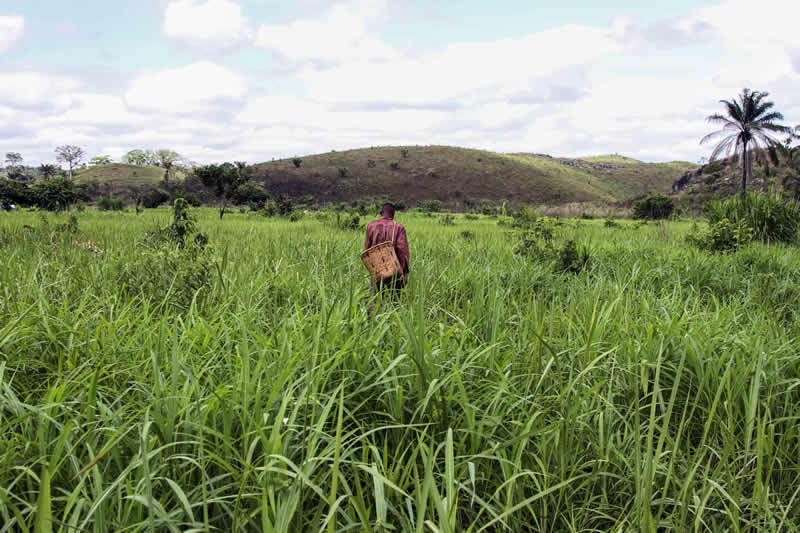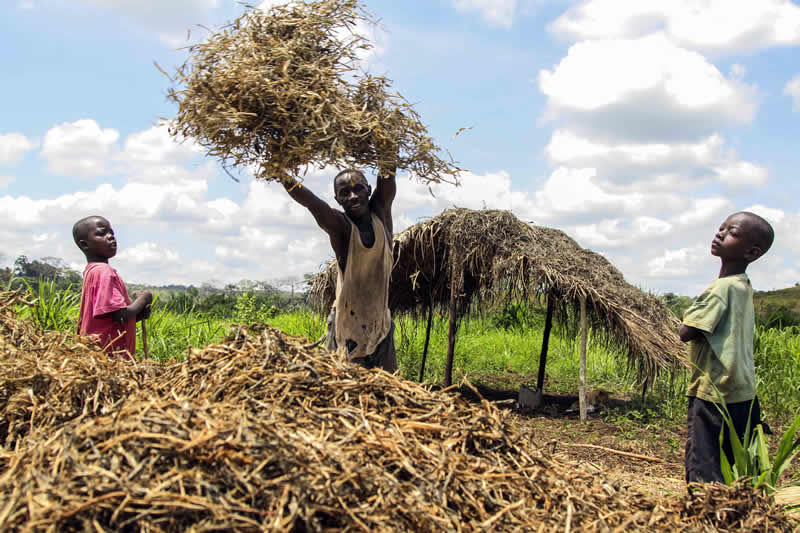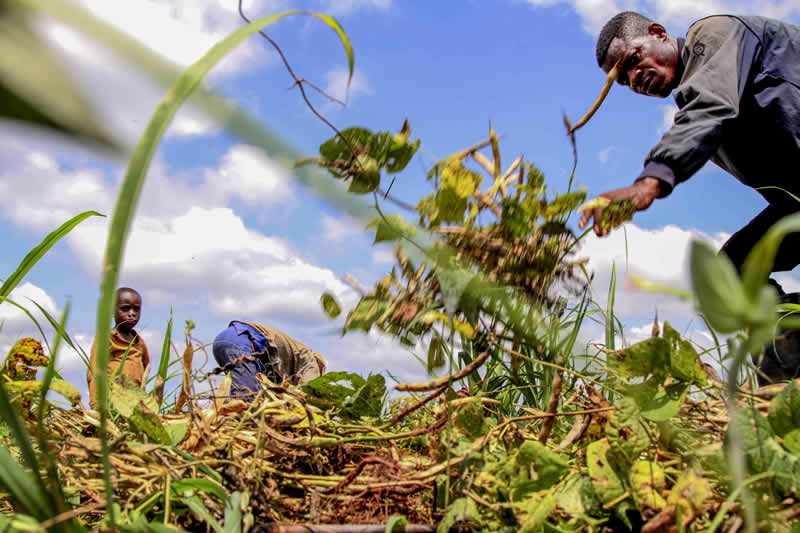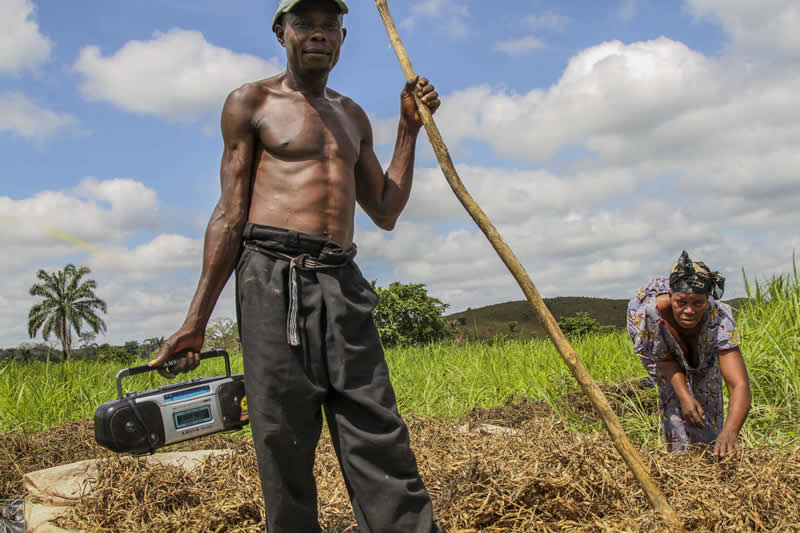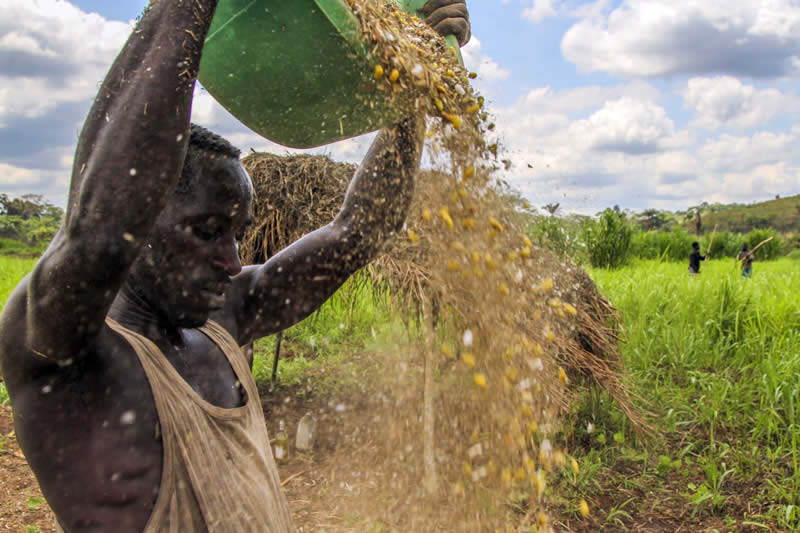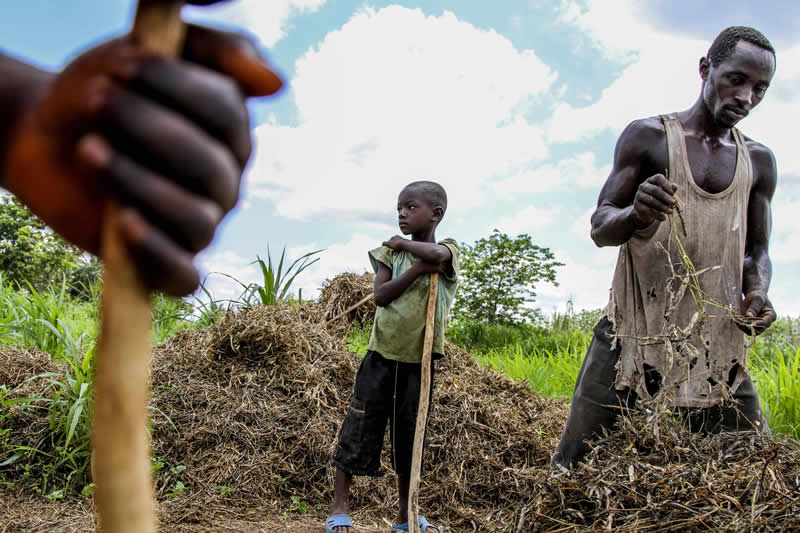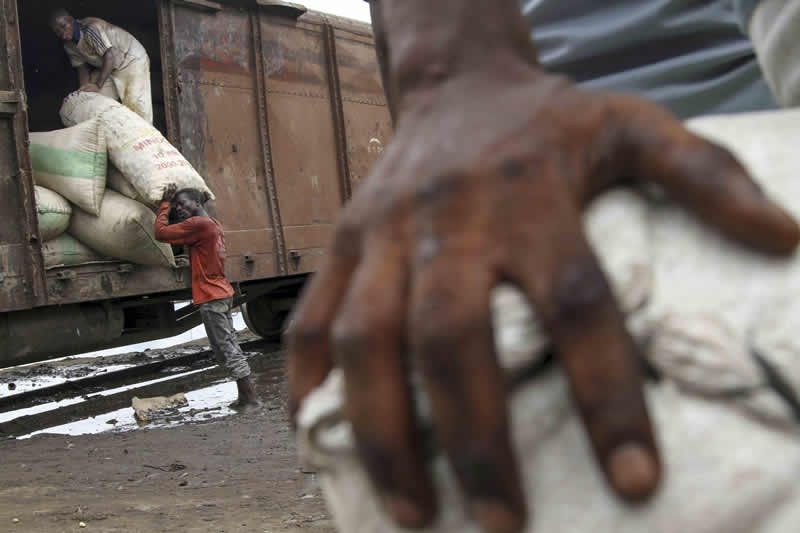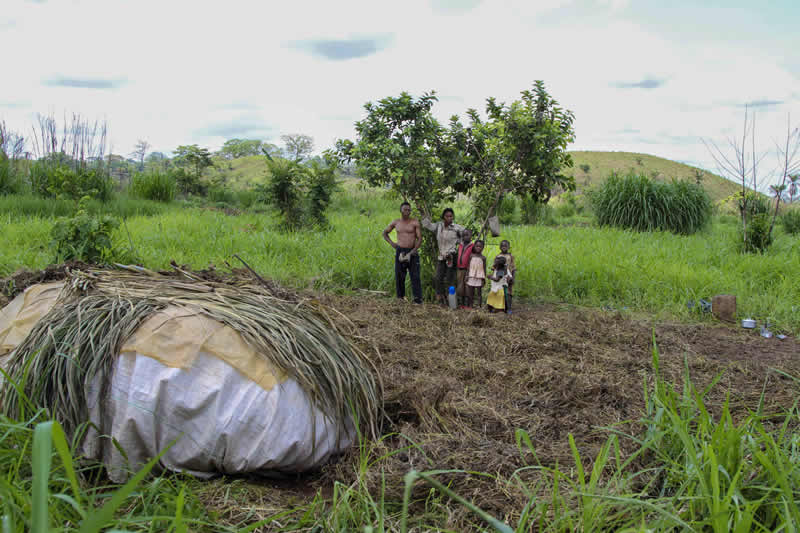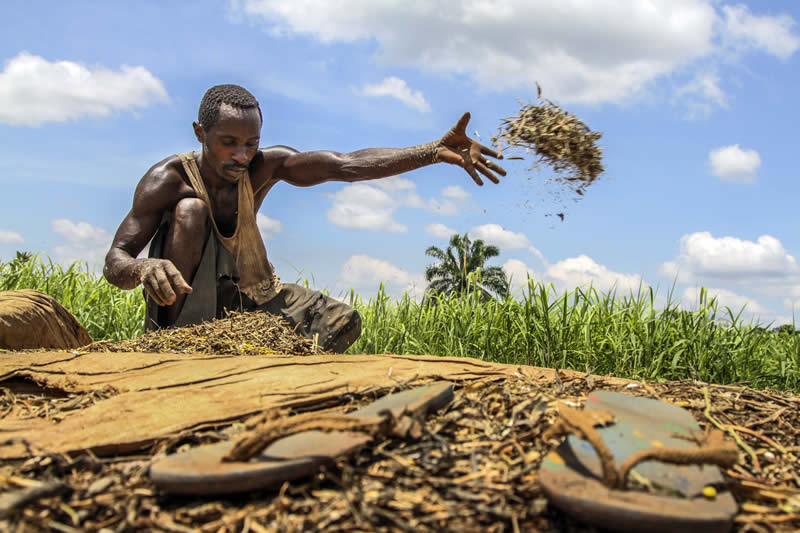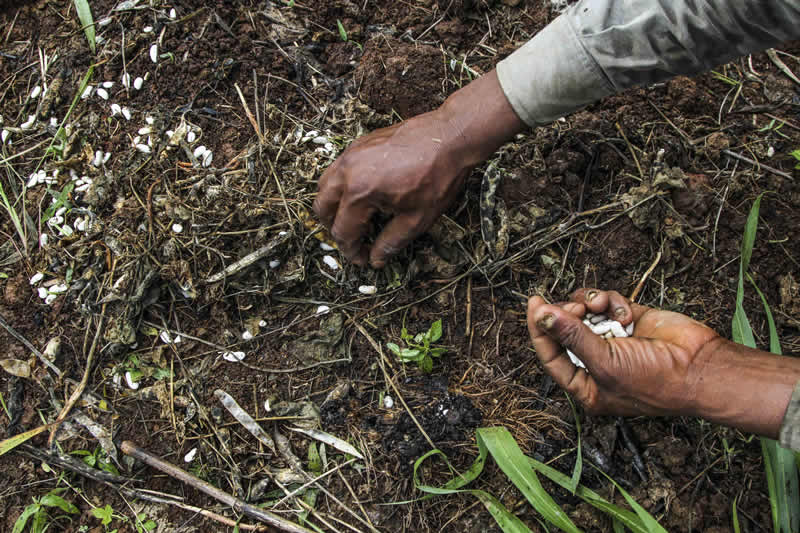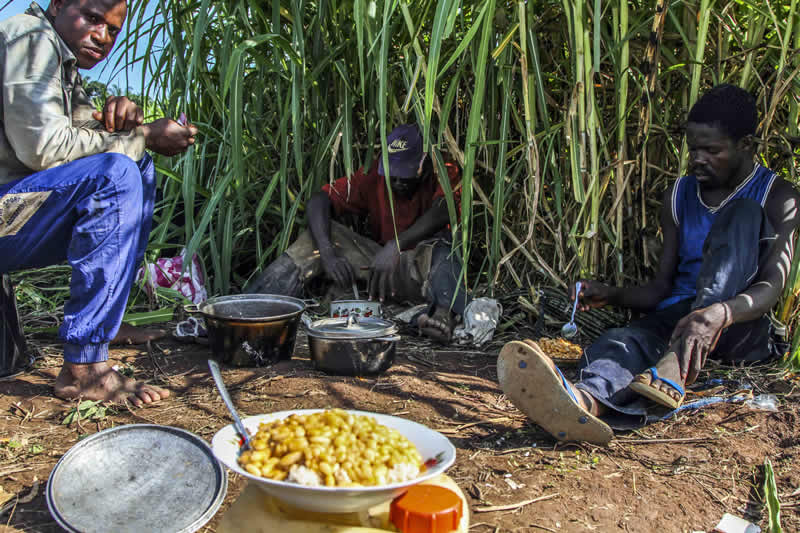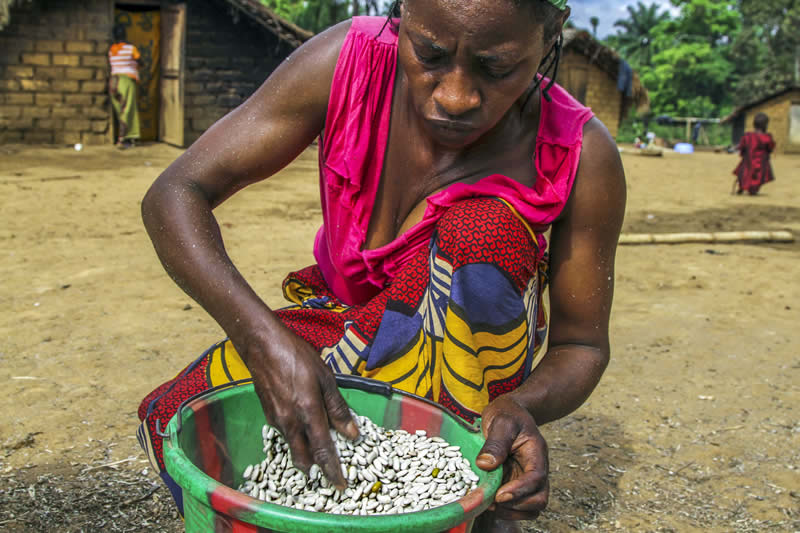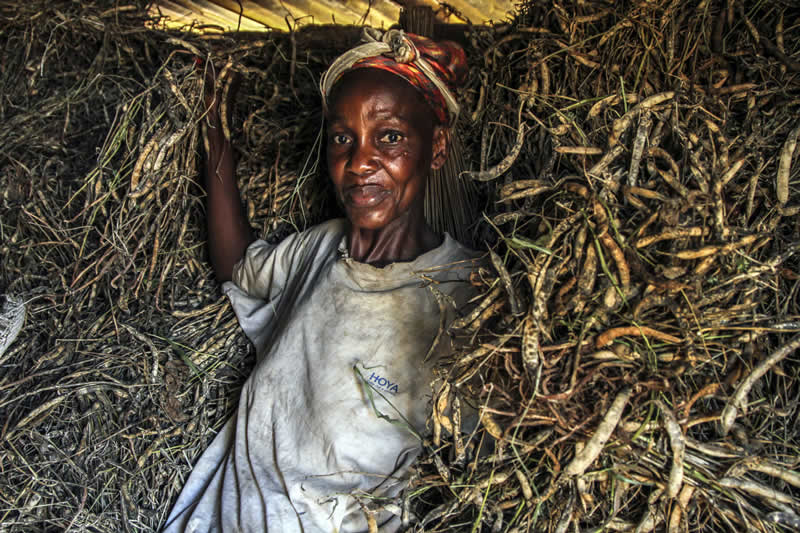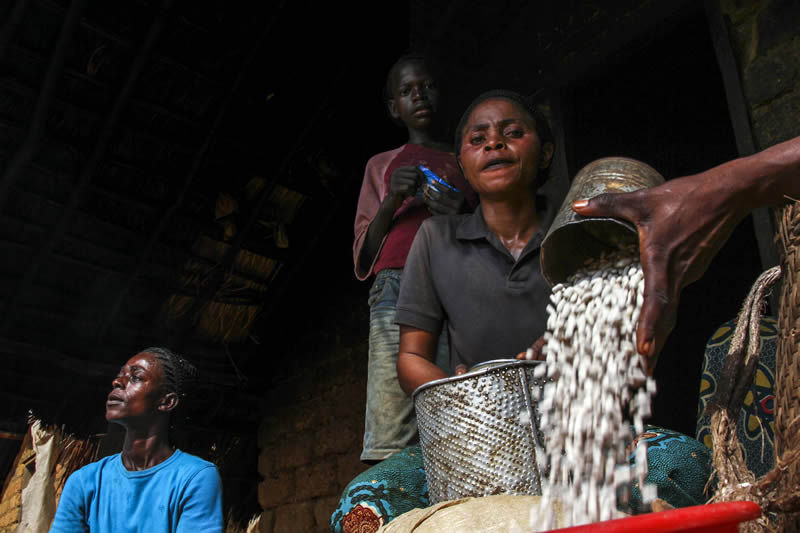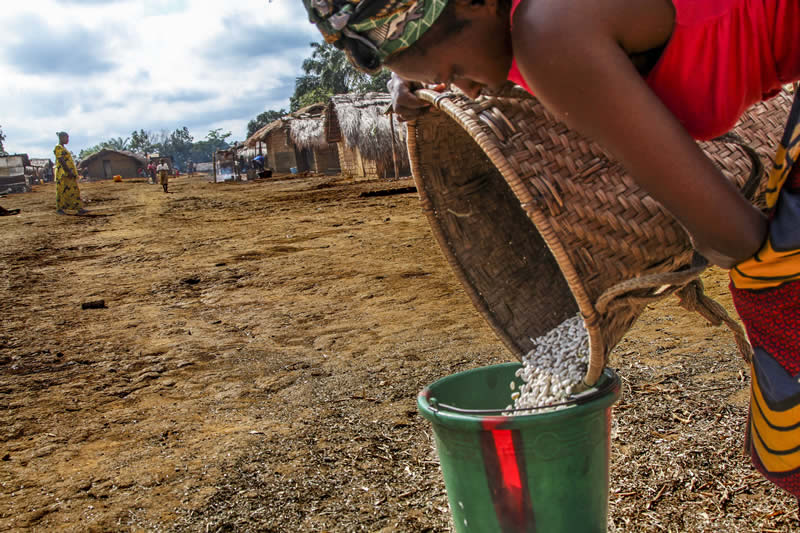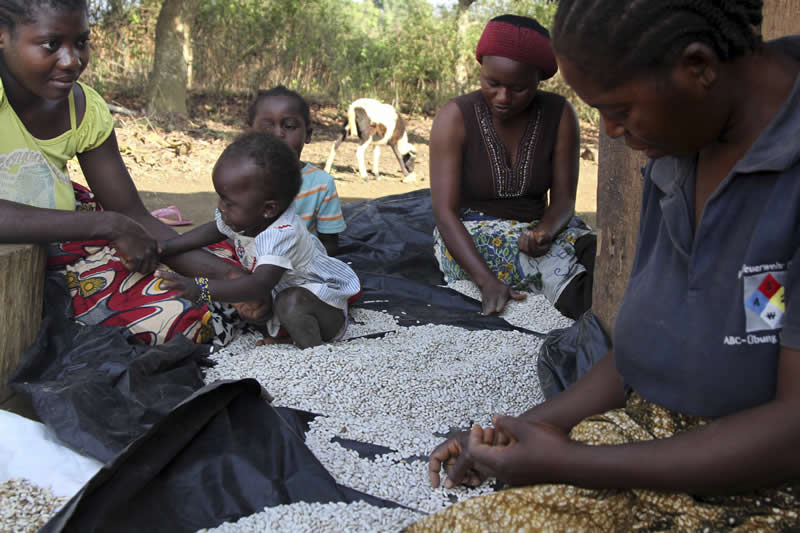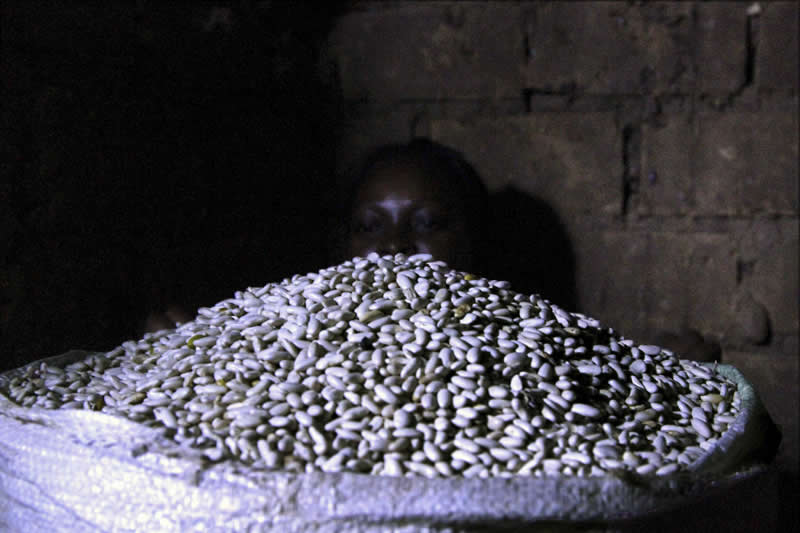It’s 10:30. I’m at Mikassou, a village that produces bean, located over 400km South West of Brazzaville, Republic of the Congo. The temperature looks hot for the day, it’s 28 degrees in the shade. The village is nearly deserted. The hushed atmosphere of brouhala, to nearby shows that the activities are active in the fields. A little further,groups of women and men are still waiting, they are ready to go to work. Without doubt, this is the harvest. Traders, wholesalers who are scrambling looking for tons of bean can be lost in camps, which is used for storage for the next harvest preparation. The idea is not very appreciated by wholesalers who supply the city with bean, due to the low amount of rain, the production rate is not reassuring and did not match those of previous years. ”The weather is too hot, our fields don’t produce well, times became hard…complains one farmer, and even when it rains, the rain disrupts our crops. ” Off discrete screams agree fields nearby.
The atmosphere is there. Beside a long water pipe that distributes and orients River waters in the fields, this is a group effort. Even the few children who should be in school finds a place to help their parents to pound out their net beans or collecting the remains on the ground. Groups of farmers take all their time working hand in hand while waiting for the traders and wholesalers come seeking their crops, there are cries, tells, Celine 72 years, in her kitchen, beside a stock of bean not husked “times have changed, our fields do not produce anymore in recent years,even young people whom we count on trimming our fields have return to the city. “, and labour is becoming scarce, the bucket of the bean we usually sell at 3,500 CFA FRANCS has quadruple in price.” In the villages silence does not reign, the village chief harasses traders who are the cause of increase in their food prices to encourage the farmers to sell all their harvest, even the land become a long term merchandise and have in turn to hired villagers to work on their fields. The workers include the Chadians, Cameroonian…looking for small jobs. Martin 38 years,Rwandan
refugee, flee to Congo 15 years ago,he moves from one village to another in search of work. : “here, working the fields cost 500 FCFA day,with this money, I can feed my family, my two children and my wife.he recounts “The evening, traders each rush to get their market produce, time to decide on how to purchase wholesale price. Explains a trader”agriculture has failed in the Congo because we wanted to make it a matter of the state, and that the country lives of the royalist of oil and wood”. Yet the country has just 3 million inhabitants for an area of 342000 Km2. Agriculture is bloodless. The Congo lacks not water, nor land: it has ten million hectares of arable land which barely 2 percent only are highlighted, an important part of vegetable is from neighbouring countries. To avoid that the country continues to import massive amounts of food, the authorities must invest a portion of the oil manna in the agricultural project to relieve its population.


